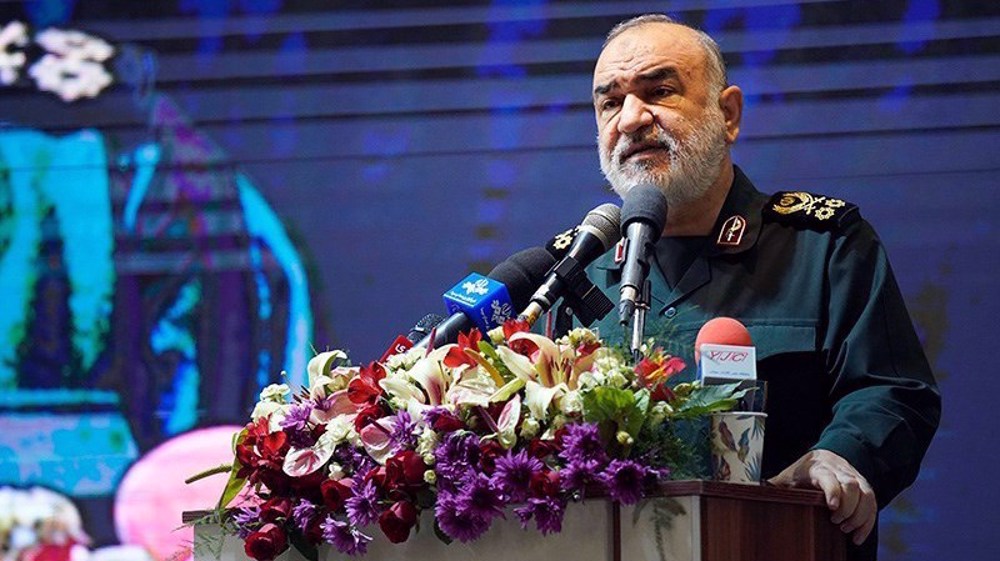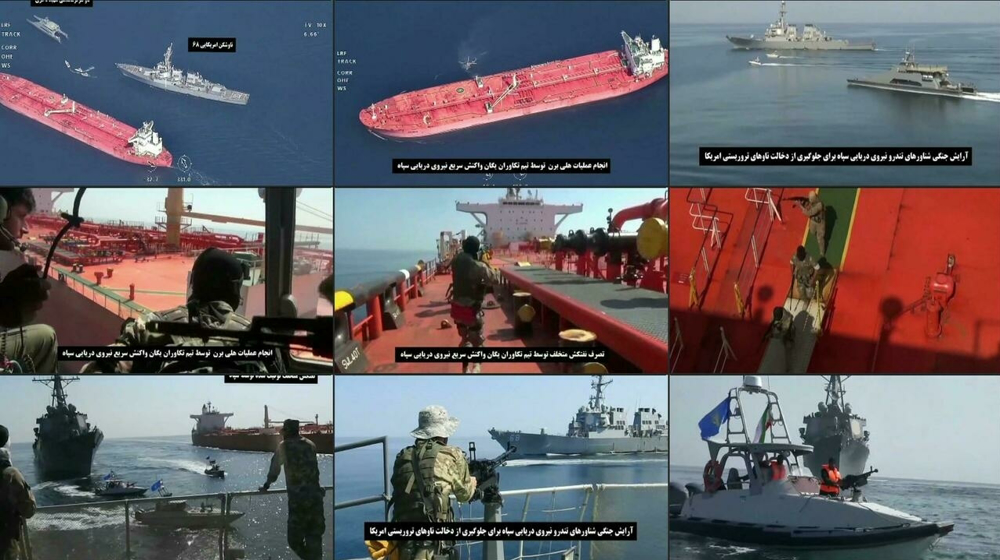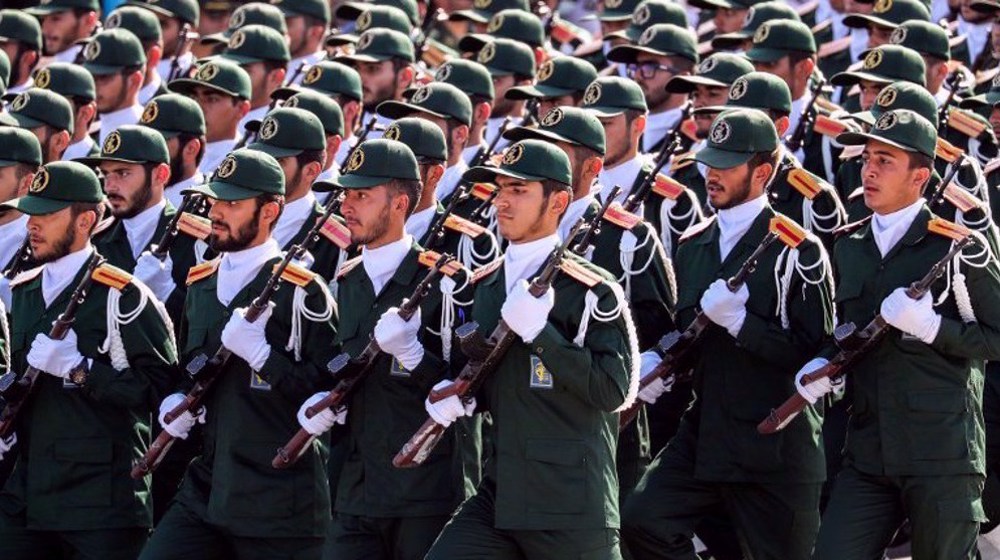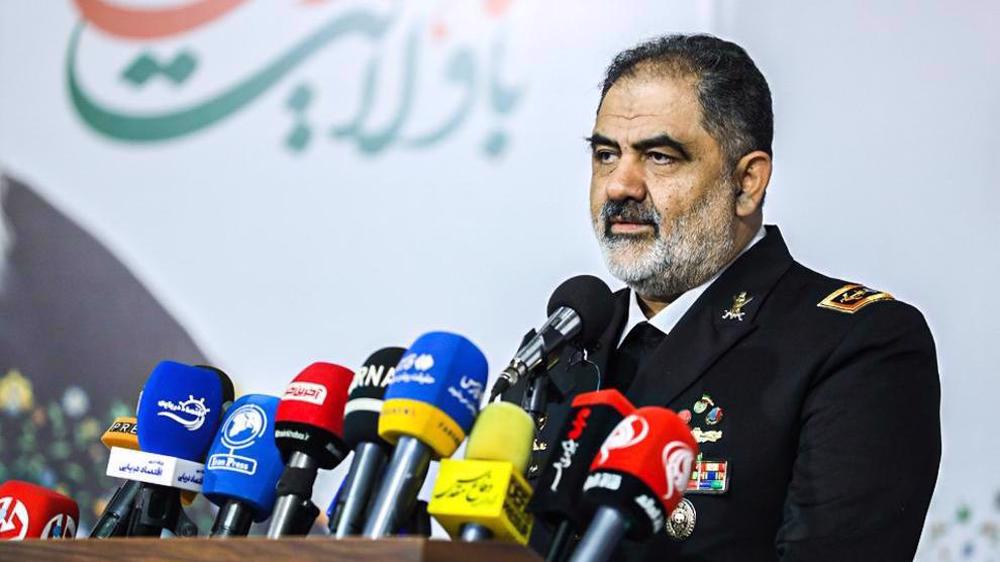US going down trajectory of decadance: IRGC chief commander
The chief commander of Iran’s Islamic Revolution Guard Coprs (IRGC) credits the country’s 1979 Islamic Revolution with initiating the downward slope in the United States’ regional influence.
The Revolution served to stop the influence of the Western ideology on the Islamic Republic, Major General Hussein Salami said, addressing an event in the holy city of Mashhad on Tuesday.
The epic development awarded the Islamic Republic with political independence and freedom to adopt its own strategic mentality, therefore, providing it with the opportunity to choose its own destiny, the commander said. It was this political independence that, in turn, ushered in independence for the country in the cultural, economic, scientific, security, and defensive areas, he added.
By extension, the Revolution’s regional reverberations came to prevent the US’s regional military interference from translating into political triumph.
He cited the as much as eight trillion dollars in the US’s military expenditure in the region and its failure to realize any of its political aspirations.
“When a country reaches this stage, its trajectory of decadence begins and its power begins to go down a descending slope,” he said, citing Washington’s failures in Iraq, Syria, Afghanistan, and Yemen.
“It was the Revolution that brought about their attrition,” the commander said.
‘Iran, US competitors in all areas’
General Salami said there was a time when the United States enjoyed command over the world’s strategic positions and political institutions and used to wield control over some 40 percent of the world’s economy and wealth.
“The United States [that exists] today is [however] far weaker than [it used to be] 43 years ago,” he said, adding that the disparity between Iran and the US’s power “is gradually giving way to parity.”
“Today, the powerful Islamic [country of] Iran is the US’s competitor in all areas,” while “before the Revolution, we were part of the West’s political geography,” noted the commander.
“It was the Islamic Revolution that ended satanic powers’ supremacy over Muslims, the commander said, adding that “exporting the Revolution’s value would, in turn, help end other Muslim nations’ subjugation to great powers’ supremacy too.”
He also remembered Iran’s triumph during the 1980-88 asymmetric warfare that was waged by former Iraqi dictator Saddam Hussein and his Western and Arab allies. “The IRGC that you witness today was far smaller and less equipped [back then] than it is now.”
‘Enemy no match for Iranian people’
“The difference between Iran’s and the US’s power has become very little,” General Salami said.
The enemy’s operations have no effect on the Iranian people’s will, he said, pointing to the Islamic Republic’s fuel exports to Lebanon that have been taking place despite the US’s sanctions facing both the countries. “They cannot hit our [fuel-laden] ships. It is Iran that is managing the United States,” he said.
‘Ayatollah Khamenei Iran’s greatest asset’
Currently, the Islamic Republic is a credible international power in various aspects under the auspices of Leader of the Islamic Revolution Ayatollah Seyyed Ali Khamenei’s guidance.
It is the Leader, who is the country’s “greatest asset,” and has cast it ahead of the enemies “in the competition over power.”
US fighter aircraft shot down ‘in friendly fire’ amid aggression on Yemen
Yemeni FM: Israel’s sponsors accountable for ongoing aggression on Sana’a
Eight Palestinians killed as Israel attacks Gaza school, hospitals
VIDEO | Rome, Milan host new protests in solidarity with Palestinians
Dec. 21: ‘Axis of Resistance’ operations against Israeli occupation
Spain jurists demand ties with Israel ties be cut
VIDEO | Press TV's news headlines
VIDEO | Iran honors top Science Olympiad medalists











 This makes it easy to access the Press TV website
This makes it easy to access the Press TV website